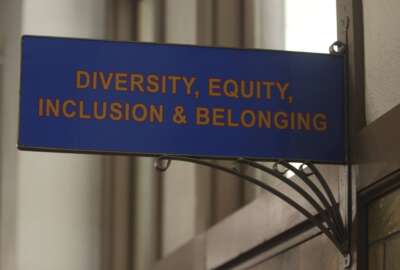NGA cultivates a new breed of analysts
Growing from its roots as a map-making agency, today's National Geospatial Intelligence Agency requires a surprisingly wide of talents. I discussed this with Susan...
The National Geospatial-Intelligence Agency wants a new kind of employee to keep up with constant technological advances and the increasing demand for accurate intelligence.
NGA wants analysts with skills that extend beyond the merely technical.
To that end, the NGA is exploring new ways of identifying, connecting with and shaping prospective employees long before the interview process.
“[It’s] not so much about majors, and not so much about depth of experience. What it takes to become a really good analyst at NGA is critical thinking, creativity, curiosity and collaboration,” said Susan Shumate, NGA’s chief of talent acquisition, during an interview with Tom Temin on the Federal Drive on the Agency of the Month Program. “We also look for people who have self-awareness and solid writing skills… we’re really looking for people who have the ability to solve problems.”
By “self-awareness,” Shumate said, she was referring to the ability of an individual to focus on their own personal task without losing sight of their place in the bigger picture of their team and the NGA as a whole, a quality particularly valued by the agency’s leadership.
“Our director frequently speaks about self-awareness,” she said.
NGA is striving to build a culture that embraces these qualities from the ground up, focusing primarily on entry-level hiring and promoting from within. This provides the opportunity to develop employees with a broader array of skills earlier in their career, such as encouraging technical specialists to gain leadership experience prior to promoting them to supervisory positions.
“The goal is to shape the workforce so they can grow into these higher level jobs, the more technical or the more managerial jobs,” Shumate said. “That’s why you’re seeing fewer external hires; it doesn’t mean we don’t need people that have those levels of expertise, but probably not as much because we’re trying to grow our workforce.”
In order to better fill these entry level positions, Shumate and NGA is exploring new ways of identifying potential candidates earlier. They are working with career advisors at colleges with relevant curriculum to reach out to students who fit the criteria they’ve laid out and student organizations with complementary interests. The idea is to surpass the standard model of career fairs and get more directly involved.
“[At career fairs,] you only get a few minutes with each person, and it’s just an opportunity for them to be able to speak with you briefly,” Shumate said. “Where if we are able to start to work with a professor on a campus, or we are able to speak to a classroom or work with a student organization on campus, that gets us closer to people who might really be interested, and we get to spend more time with them.”
NGA also has built an “ambassador program,” consisting of experts in their particular field that volunteer to assist recruiters in outreach programs. This lets them provide prospective employees with more detailed answers immediately, and make more informed decisions when making on-the-spot job offers.
NGA’s biggest competition for this young talent are the large technology companies, such as Google and Apple, which offer larger salaries for work that seems more glamorous.
It’s a dynamic that Shumate said she considers regularly. Her strategy of putting in the time to build relationships earlier seems to be effective, as she said NGA never has any shortage of applicants. But she said what she believes really sets NGA apart, especially with young people, is their mission.
“People come to us because they want to do something good,” she said. “If you look at the generation today, what do they want most of all? They want… work-life balance… and something meaningful. People come here because they have the opportunity to contribute to this incredible mission that we have.”
Copyright © 2025 Federal News Network. All rights reserved. This website is not intended for users located within the European Economic Area.
Daisy Thornton is Federal News Network’s digital managing editor. In addition to her editing responsibilities, she covers federal management, workforce and technology issues. She is also the commentary editor; email her your letters to the editor and pitches for contributed bylines.
Follow @dthorntonWFED






